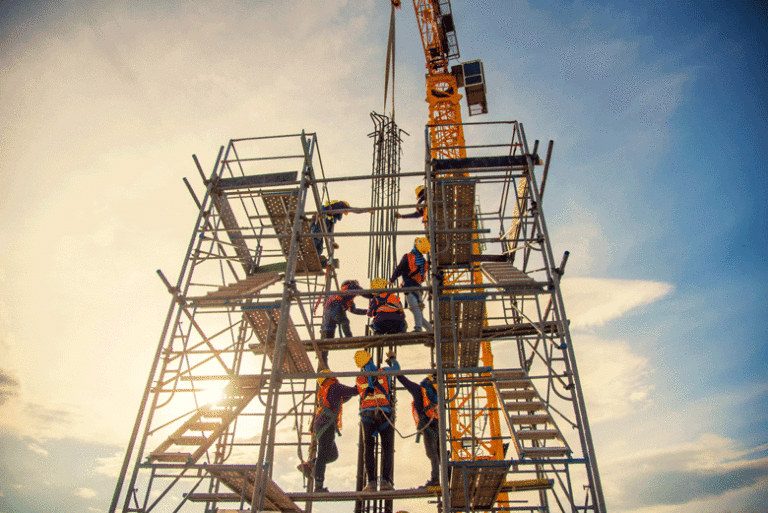Dubai contractors look for regulation to counter conspiring market forces

Deteriorating market conditions are threatening the delivery of major projects in the emirate
As the trading conditions for construction companies continue to deteriorate, there are growing calls from contractors for more regulation to ensure that the industry delivers projects more effectively.
The hope is that a better regulated market will help overcome market forces that are working against the construction sector, threatening its ability to deliver projects, and play a leading role in delivering Dubai’s long-term economic objectives.
In recent times, project clients, both public and private, have had to deal with either reduced budgets or lower property prices in recent years and this has strained their finances. The response has been to drive down construction costs by securing better prices from contractors and suppliers.
The industry has obliged as new players to the market have served to intensify the competition and screw down prices. “There is much more competition in the market today than there was 10 or 15 years ago,” says a local contractor. “For the bigger complex projects that we like to work on there used to be maybe 10 to 12 potential bidders. Nowadays there are many more, and often we are competing against companies that we have not even heard of before.”
New players are coming in even when work is being secured with thin margins. “There always seems to be someone either to come into the market from outside, or a small local player prepared to step up and take on a big project,” says a regional contractor.
While new players are a challenge for established players, project clients have welcomed them as this allows them to secure contractors services for low prices. “The market is good for us. Prices are low and I see plenty of contractors bidding when we issue tenders,” says a local developer.
In theory, competition improves efficiency as bidders strive to execute the same work more effectively. That has not always been the experience for construction in Dubai, and a growing number of projects are encountering problems during their delivery resulting in delays, cost overruns and poor quality products, which is ultimately bad for clients and contractors.
Because the issue is one caused by market forces, some form of intervention is required if it is to be successfully resolved. “The problem with our industry [construction] is that it has low barriers to entry and it is difficult for players to differentiate themselves from the competition,” says the regional contractor.
While the onus for differentiating themselves from the competition lies with the individual contractors and the services they provide, a regulator can impose barriers to entry. This proposition has met with resistance in the past as it implies higher construction costs for project clients – including public sector entities. While this may still be true for individual client bodies, on a more macro level the argument is that it would help Dubai meet some of its long-term economic targets.
The barriers to entry that contractors propose need not be purely protectionist. Instead, government and government-related entities could set standards that dovetail neatly with Dubai economic ambition of being a high value economy driven by technology and innovation rather than a market with access to cheap labour.
The problem for construction companies is that investing in technology and innovation is an upfront cost that makes them less competitive if bidding against companies that are not making the same investments. This disincentives firms and could undermine Dubai’s vision for the construction industry.
For construction, the Dubai leadership has openly stated that it wants its workforce to be more skilled by harnessing new technologies. When launching Dubai’s 3D printing strategy in 2016, UAE Vice-President, Prime Minister and Ruler of Dubai Sheikh Mohammed bin Rashid al-Maktoum gave a glimpse of how he expects the construction sector to be in the future.
“This technology [3D printing] will restructure economies and labour markets as the use of unskilled labour will come down compared with the current situation, especially in the construction sector. It will also redefine productivity because the time needed for 3D printing of buildings and products will be 10 per cent of the time taken in traditional techniques,” said Sheikh Mohammed.
3D printing is just one way that the construction industry can use technology. Things like modular construction completed in factory conditions offsite and building information modelling (BIM) could be either encouraged or mandated by a regulator to help improve efficiency with a limited number of skilled staff and technicians rather than large numbers of unskilled workers.
Environmental as well as health and safety regulations are potential barriers to entry that would have positive externalities for the broader economy. “We have invested a lot in health and safety. Some clients, particularly those with international profile, have started introducing proper worker welfare requirements, but the majority are nowhere near there yet,” says an international contractor.
The hope is that if such regulations were introduced there would be fewer players, greater incentives to invest in technology and innovation, better paid jobs, and ultimately an industry that delivers projects more efficiently.
While this approach may enhance the value of construction industry and its overall benefit to the economy, it will likely mean a greater upfront cost, and for a market where price has been the dominant factor for decades that will be a significant step change.


